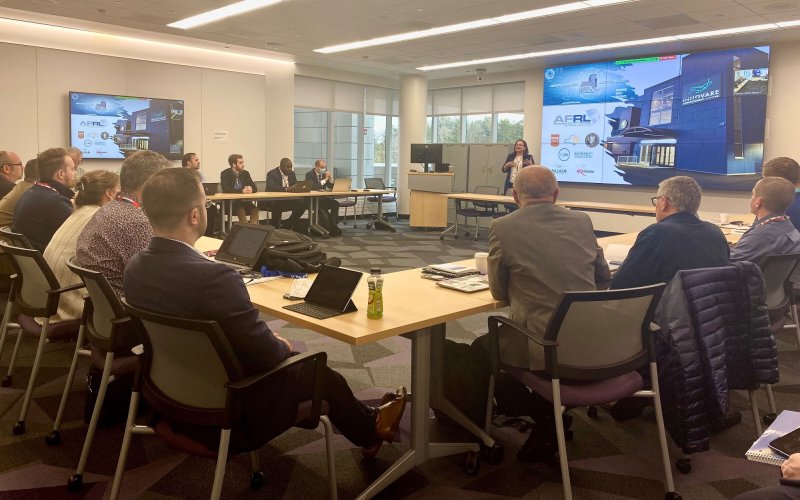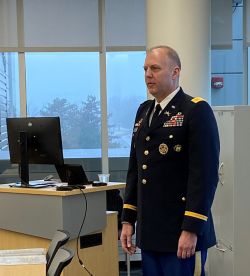Cybersecurity Conference Draws Researchers from Academia, Industry and the Military

ALBANY, N.Y. (March 24, 2022) — How is cybersecurity being leveraged as an effective tool in global conflicts? This was an emerging theme at the 17th International Conference on Cyber Warfare and Security (ICCWS) hosted recently by the College of Emergency Preparedness, Homeland Security and Cybersecurity (CEHC).
The two-day hybrid event, co-chaired by CEHC assistant professors Unal Tatar and Benjamin Yankson, convened cybersecurity researchers and practitioners to explore innovative solutions for addressing complex cybersecurity problems through keynote presentations, workshops, plenary sessions and poster presentations. The event yielded 72 academic research papers from 18 countries, including Australia, Finland, Malaysia, Pakistan, South Africa and the United States.
“Conflicts such as the one in Ukraine are just one example of the growing value of research and education in cybersecurity,” said Robert P. Griffin, founding dean of CEHC. “The University at Albany recognizes the need to continue expanding its relationships with organizations to foster and support this innovation and enable students to gain critical experience in the cybersecurity domain.”
The conference program included keynote speakers Heather Hage, president and CEO, Griffiss Institute; Tony Sager, senior vice president and chief evangelist for The Center for Internet Security; and Col. Jeffrey Erickson, director of the Army Cyber Institute at the United States Military Academy at West Point. All three highlighted the development of cybersecurity innovation within the Capital Region and surrounding areas, and the national and global impact of these regional initiatives.
Creating Real Impact
Hage spoke about her mission to push boundaries and innovate by connecting academia, industry research and practice. She detailed how the industrial ecosystem of Rome, N.Y., and its surrounding areas are being transformed through new research institutions and innovation centers such as The Air Force Research Laboratory, The Griffiss Institute and The Innovare Advancement Center.
These centers developed cutting-edge initiatives such as “Hack-the-Sat,” where hackers are invited to infiltrate a satellite, and VICEROY, where the next generation of cyber defenders will be trained with a hands-on experiential curriculum — all providing opportunities for regional high school to post-graduate students as well as higher education faculty.

Yet likely the most timely presentation given the conflict abroad came from Col. Jeffrey Erickson, director of the Army Cyber Institute at West Point. Erickson talked about developing the critical capabilities needed to respond to cyberattacks on modern cities. He provided insight into how the military depends on critical infrastructure such as roadways and ports to ensure its supply chain needs are met.
The pandemic, Erickson noted, caused decision makers to rethink this infrastructure dependency. They developed “Jack Voltaic,” a repeatable research experiment that tests critical infrastructure’s ability to support military operations during a multi-sector cyberattack. Research institutions were key players in developing and deploying these experiments, which provided an essential learning environment enabling participants to gain exposure, train and assess response.
ICCWS attracts academics, military professionals and practitioners from around the world to present their research findings in the form of empirical studies, case histories and other theoretical and practical contributions. In addition, the conference provides doctoral degree candidates opportunities to network and present papers and posters.
“Hosting this leading interdisciplinary cybersecurity conference, ICCWS, is a significant indicator of the University at Albany’s research excellence and strong collaborative ties with the international cybersecurity community in developing solutions to emerging problems,” Tatar said.




